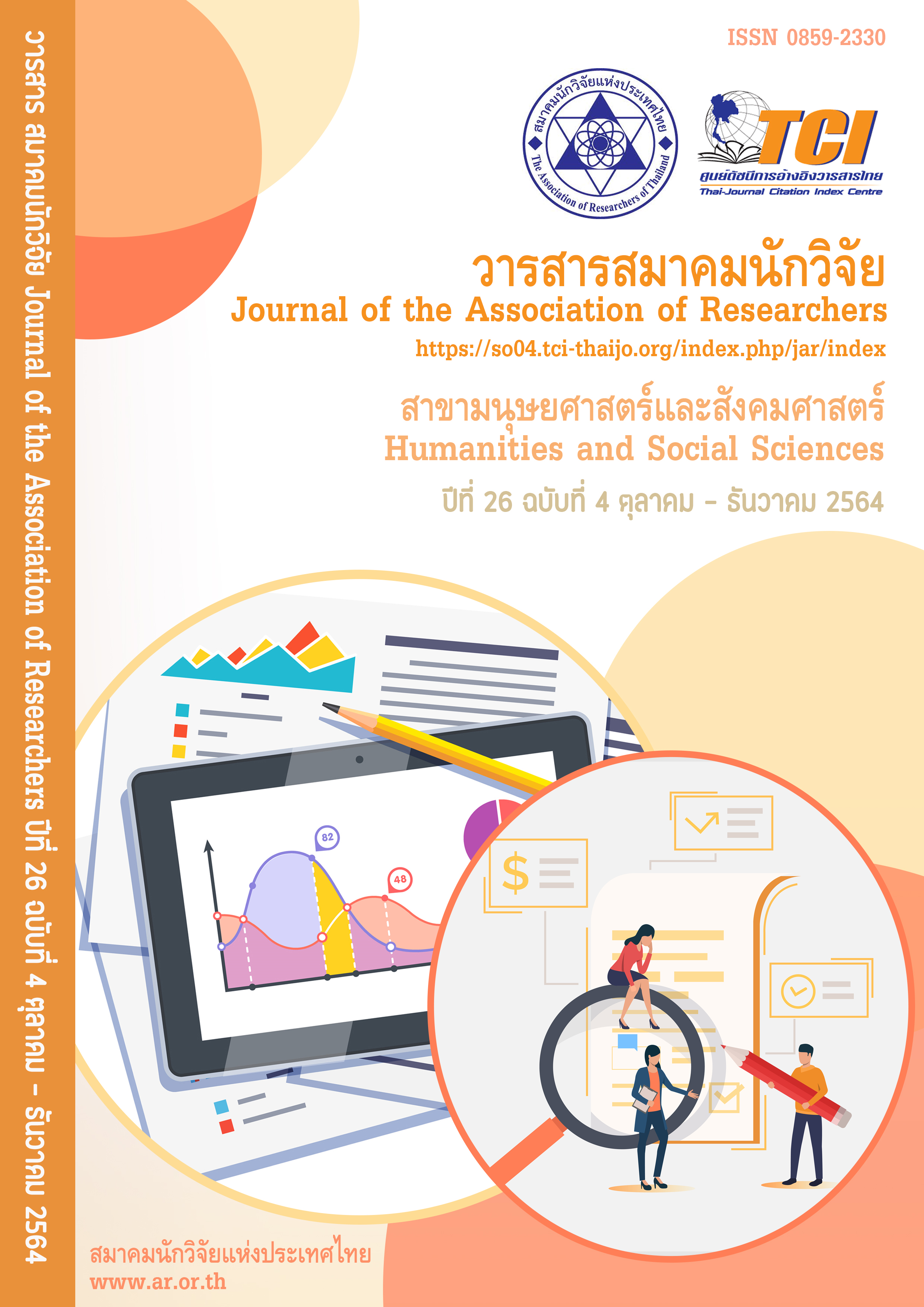Relationship between Work Characteristics and Experience with Employee Engagement: a Case Study of Division 8, Armed Forces Security Center, Royal Thai Armed Forces Headquarters Security Center
Main Article Content
Abstract
Problems related to job performance and work experience with the commitment to the organization of government officials can be used to enhance and increase the personnel's commitment to this educational organization The objectives of this study were to study the level of engagement, factors, the relationship between work style and work experience. with the commitment to the organization of government officials, Division 8 Security Center The sample group used in this study is a civil servant, Division 8, Security Center The Royal Thai Armed Forces Headquarters consisted of 287 persons. The instrument used to collect data was a questionnaire. Descriptive statistics such as frequency and percentage were used for personal data analysis, mean, standard deviation were used. The statistics used to test the hypothesis were t-test, one-way analysis of variance, and Pearson's correlation coefficient. The results showed that Factors affecting the relationship between job characteristics and work experience The overall organizational commitment was at a high level of opinion ( = 3.79, S.D. = 0.82). Efforts to carry out the mission Factors of Attitude towards Colleagues and job characteristics factors There was a high level of opinion when tested with Pearson's correlation statistic (Product Moment Correlation Coefficient) found that the factors studied were: demand factor job characteristics factor work experience factor Dedicated effort factor to carry out the mission and attitude factors towards colleagues It has a statistical significance of 0.000, which is less than the 0.01 significance level.
Article Details
บทความที่ปรากฏในวารสารนี้ เป็นความรับผิดชอบของผู้เขียน ซึ่งสมาคมนักวิจัยไม่จำเป็นต้องเห็นด้วยเสมอไป การนำเสนอผลงานวิจัยและบทความในวารสารนี้ไปเผยแพร่สามารถกระทำได้ โดยระบุแหล่งอ้างอิงจาก "วารสารสมาคมนักวิจัย"
References
ธีรินทร์ มะระกานนท์. (2556). ศึกษาคุณภาพชีวิตในการทำงานที่ส่งผลต่อความ ผูกพันต่อองค์การของพนักงานบริษัทเอกชนในจังหวัดลพบุรี
สองชัย นักจะเข้ และ สุพัตรา จุณณะปิยะ. (2557). เรื่องความผูกพันต่อองค์การของข้าราชการทหาร กรมการทหารช่างค่ายภาณุรังษีจังหวัดราชบุรี. (วิทยานิพนธ์ปริญญามหาบัณฑิต).กรุงเทพมหานคร:มหาวิทยาลัยเกษตรศาสตร์.
ศิริวรรณ แม้นศิริ. (2558). ปัจจัยที่ส่งผลต่อความผูกพันต่อองค์การของบุคลากร สังกัดสำนักงานส่งเสริมการศึกษานอกระบบและการศึกษาตามอัธยาศัยจังหวัดฉะเชิงเทรา. (คุรุศาสตรมหาบัณฑิต). ฉะเชิงเทรา: มหาวิทยาลัยราชภัฏราชนครินทร์.
ชลิตา แค่มจันทึก. (2559). การศึกษาความสัมพันธ์ระหว่างแรงจูงใจในการทำงาน ความผูกพันต่อองค์การที่มีผลต่อระดับความคิดเห็นพฤติกรรมการทำงาน: กรณีศึกษา มหาวิทยาลัยเทคโนโลยีราชมงคลธัญบุรี. (การค้นคว้าอิสระปริญญามหาบัณฑิต). ปทุมธานี: มหาวิทยาลัยกรุงเทพ.
Buchanan II, B. (1974). Building organization commitment the socialization of managers in work organization. Administrative Science Quarterly, 19, pp. 553-546.
Steers, R.M. (1977). Organization Effectiveness. California: Goodyear Publishers Inc.
Steers, R.M., & Porter, L. W. (Eds.). (1991). Motivation and Work Behavior (5th ed.). New York: McGraw-Hill.
Taro Yamane. (1973). Statistics: An Introductory Analysis. 3rdEd. New York: Harper and Row.


